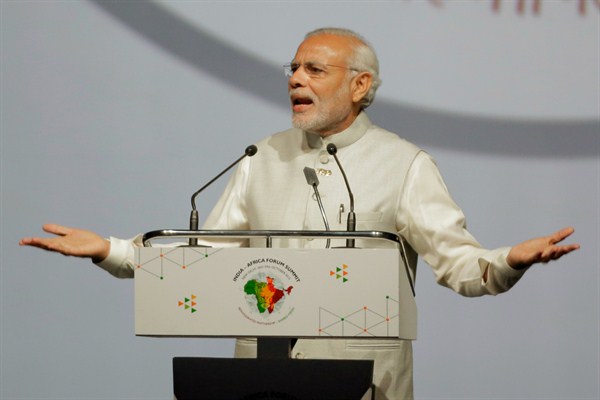Last week, I was in New Delhi to attend the Asian Forum on Global Governance, at the same time that 40 African leaders were gathering in the city to meet with Indian Prime Minister Narendra Modi at the India-Africa Forum Summit.
The scheduling was a coincidence, but the official summit added some real-world insight to the nongovernmental deliberations at the Asian Forum. Relations among the countries of the Global South have become an important feature of the debate about how to reform the institutions of global governance. However, in contrast to the predictable Cold War-era positions of the Non-Aligned Movement (NAM), which has addressed the concerns of developing countries since the 1950s, the current dynamics are more textured. Countries are less likely to endorse a fixed set of common principles to protect their interests vis-a-vis the powerful countries of the North, even though the Global South still strives for a coherent and effective message.
India is also an appropriate place to engage in a conversation about making global institutions more inclusive and more attentive to the concerns of the developing world. It is the world’s largest democracy, home to one-sixth of the world’s total population. It is both a developing country, with endemic poverty, and a rising middle power, with global leadership ambitions and growing clout in international economics due to its growth rates and the domestic market represented by its expanding middle class. Its United Nations experts are both sophisticated and confident in asserting India’s role in addressing the crises of legitimacy, authority and representation that are core deficits of the U.N. and other global governance institutions in the 21st century.

